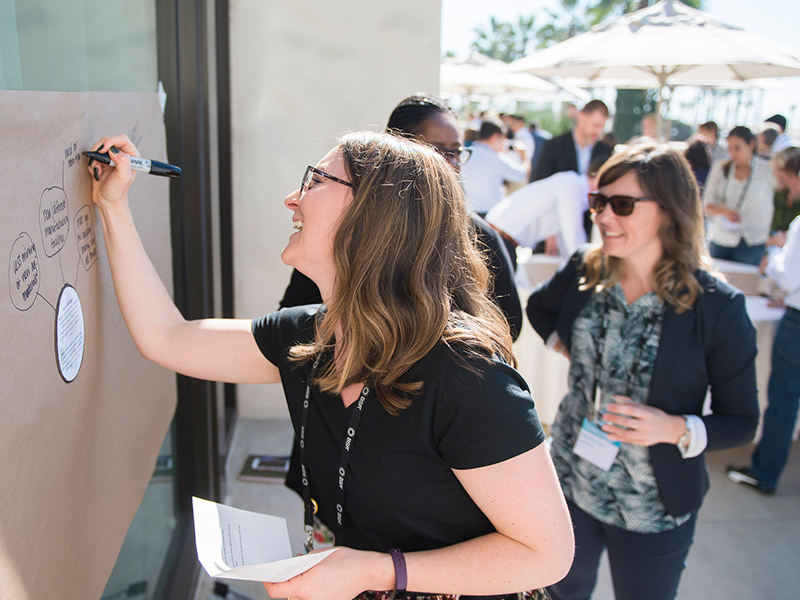
In an increasingly polarized world, we often look to sort organizations, ideas, or people into good or bad. When you communicate in soundbites or 140 characters (or even a whopping 280!), it can become challenging to provide context or nuance.
This trend toward categorizing good and bad actors has applied to the private sector for a long time. Big corporations are often portrayed as universally evil, while small businesses are assumed to be good. And while most people know it’s not that simple, it takes time to really investigate the nuance. The starting point for BSR’s theory of change is our open membership policy: Any company that expresses the desire to improve its sustainability performance is welcome to join BSR.
Even among large corporations, consumers and the media often paint one company, or an entire industry, in a negative light, rather than try to understand the balance of positive and negative impacts that most companies have on the world around them. As F. Scott Fitzgerald famously said, “The test of a first-rate intelligence is the ability to hold two opposed ideas in the mind at the same time, and still retain the ability to function.”
At BSR, our theory of change is based on this ability, and we believe the greatest impacts occur in the context of this nuance. As lead of BSR’s global membership, I am often asked, “How can BSR possibly work with ______ (insert your favorite company to hate)?” The answer is that we believe in working with business to truly create a more just and sustainable world. We can’t do that if we only work with the small percentage of companies who are already 100 percent committed; and we also know that nobody is perfect.
For example, Unilever has been named the global leader on sustainability in the GlobeScan/SustainAbility Leaders Survey for seven years in a row. Yet Unilever readily acknowledges that they have not yet achieved all of their sustainable living objectives: They understand the need for continuous improvement. And if we only worked with companies at the level of sustainability commitment of Unilever, we would not be doing a very good job in truly changing the way all mainstream business is done. We would also miss opportunities to multiply the number of leaders driving meaningful, sustainable change throughout the ecosystem.
From our perspective, all companies have areas of their performance that can be improved. As our founders stated, BSR works with “leaders and learners, and most companies are both.” The integrity of this model is safeguarded by our policy against allowing companies to cite BSR membership as a “seal of approval,” certifying in some way that they have achieved a certain level of performance. As such, we are clear in stating that BSR membership alone does not provide any qualitative assessment of a company’s performance on sustainability.
We also understand that some industries are inherently less sustainable than others—and for some organizations, it may make sense to avoid an entire sector when developing an engagement strategy. Our model is not perfect, and it works in part because other organizations have different theories of change that complement what we do.
However, at BSR, we have found that the same sectors that some find problematic are the ones where the greatest opportunities for transformation often exist. Our mission is predicated on engagement, and from this perspective, we don’t believe it makes sense to uniformly single out an industry. That’s why BSR works across many industries that some may find objectionable—from those producing GMOs, soft drinks, tobacco, or fast food to those in the business of defense, nuclear power, or oil and gas.
To summarize, our theory of change is based on inclusion and continuous progress within mainstream business. I believe our approach substantially increases our opportunity for impact; it also enhances our ability to engage deeply with businesses across the sustainability leadership spectrum on the tough challenges the world faces today.
BSR’s latest sustainability insights and events straight to your inbox.
Topics
Let’s talk about how BSR can help you to transform your business and achieve your sustainability goals.


